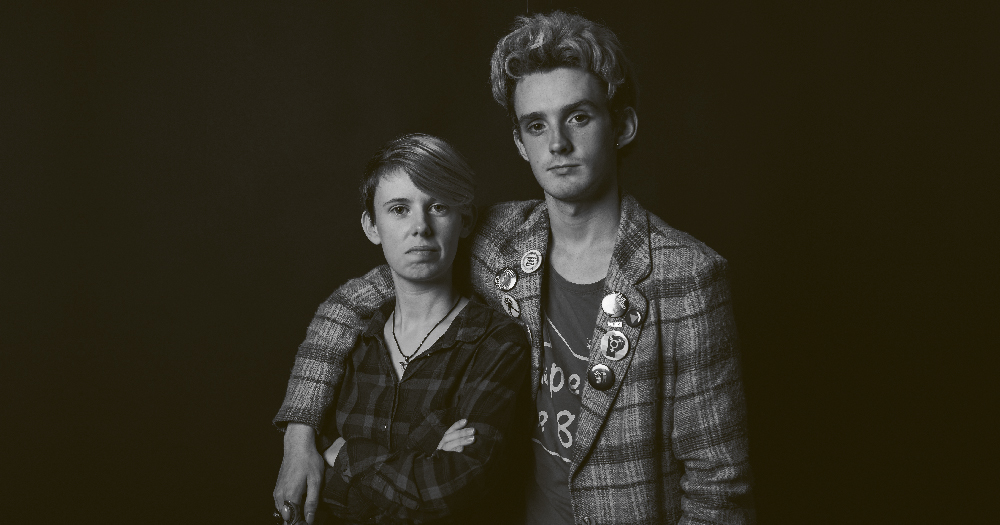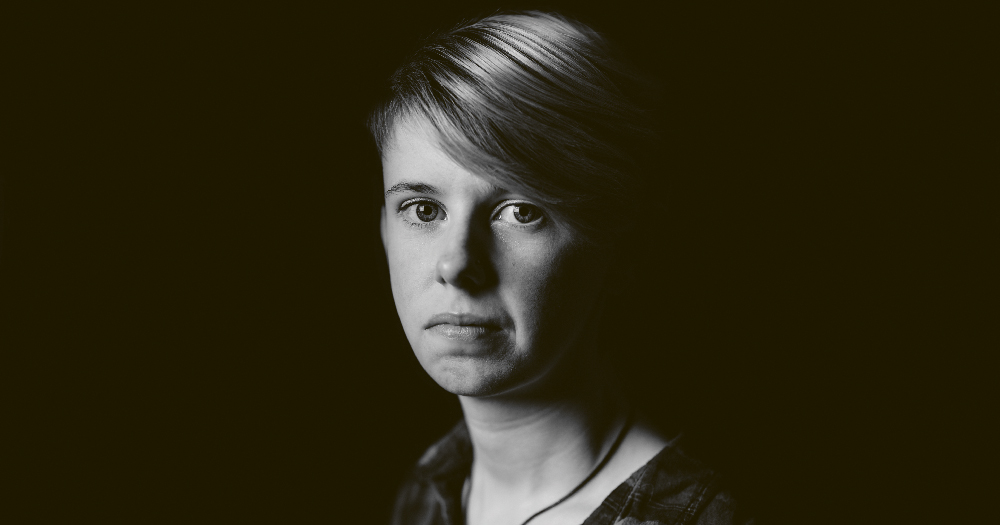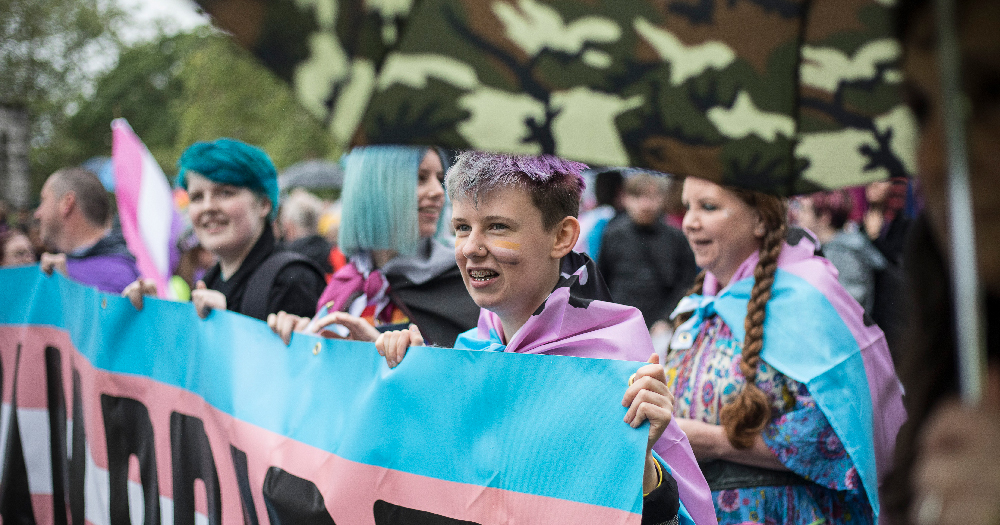“I’m Ollie, I’m non-binary, I use they/them pronouns and I’m 23.” Before meeting the co-founder of Trans and Intersex Pride Dublin, I remind myself of the current, undeniably sombre, statistics regarding the marginalised community.
Each year on November 20, the International Trans Day of Remembrance is held. The annual Trans Murder Monitoring report compiled by Transrespect versus Transphobia Worldwide have recorded over 3300 deaths since the project began, only 11 years ago. This year alone, over 330 trans and gender diverse people have lost their lives.
It was only last May that the World Health Organisation’s global manual of diagnoses was altered, no longer classifying transgender health issues as mental and behavioural disorders. The liberation provided by this revision cannot be underestimated for trans people, who are consistently ignored and belittled with their sanity constantly called into question.
Despite the numbers, and despite being constantly pushed into the peripheral, Ollie channels their anger into proactive action in order to help as many trans people in Dublin as possible. Despite the fact that I am a stranger to them, Ollie is immediately generous with their sincerity and honesty while speaking to me about the difficulties of Irish trans life.
After becoming involved in the ground-breaking Marriage Equality referendum of 2015 and Repeal campaign last year, Ollie knew that the time was right for Trans and Intersex Pride Dublin to originate:
“I was in sixth year at the time of my first vote. I remember walking past No posters on my way to school during the Marriage Equality referendum. I remember feeling really angry that I had to rely on other people for my own rights, but it was a fantastic grassroots campaign, and that’s when I saw that people can make change. That’s when my activist mindset came into being.”
I don’t want to have to debate this transphobic, religious figure and feel like I have to bear the weight of the entire trans community.
Ollie’s experiences of taking part in crucial movements which both produced landslide victories led them to tackle the organising of Trans Pride Dublin. They knew the right people, people who could back them, and focused on making a political difference.
Trans Pride Dublin held its second event in July of this year, emphasising the metamorphosis back to the radical protest roots of LGBT+ liberation, involving ordinary people seeking to overhaul the systematic discrimination of the queer community.
Seeking out allies is often a necessary component of marginalised communities fighting for the recognition of their rights.
Ollie makes sure to point out the difference between elevating trans voices versus forcing them to debate their human rights against figures who ridicule them:
“In my own personal view, I’m always happy to talk to people who have a positive outlook. There’s a difference between talking to trans people because you want to write something or you want to showcase them and let them tell their stories versus a debate.
“I don’t want to have to debate this transphobic, religious figure and feel like I have to bear the weight of the entire trans community.”
Ollie outlines the constant pressure placed on the trans and intersex community to illustrate their existence, to prove their worth and dispel dangerous myths surrounding their mental health. Healthcare professionals consistently show their bias against trans people, with one well-known consultant even denigrating his own patient on live radio in recent months.

With Trans Pride, we’ve encouraged allies to come out, trade unions and women’s groups to come out — We can’t fight on our own, we need solidarity from other groups.
“There’s never going to be a right way. Trans people trying to explain to cisgender people will make mistakes, you know? I think they shouldn’t be placed on so many levels, it’s very individualised,” Ollie explains, touching on the pressure facing lone trans activists.
“I think it’s more of a systematic thing that needs to happen, with sex education in schools,” they continue.
“We need to start from a young age when it comes to teaching young people about their bodies, around consent, around LGBT identities. This will help LGBT people feel more comfortable in themselves, but it’ll also help cis, straight people to understand that not everyone is cis, not everyone is straight or gender-conforming.”
Unfortunately, the relatively small group of Dublin trans people can’t achieve these changes single-handedly:
“We need to have more of a solidarity outlook. With Trans Pride, we’ve encouraged allies to come out, trade unions and women’s groups to come out — We can’t fight on our own, we need solidarity from other groups.”
Absorbing the tirade of relentless online abuse must surely impact on the mental health of trans people, but managing the Trans Pride Dublin Twitter account is another level.
“It is really hard to be positive, especially organising an entire Pride. I put a lot of pressure on myself. I felt like if something went wrong at Trans Pride, it was my fault.
“The comments were awful around the Primetime show with Graham Linehan,” Ollie mentions.
“I felt that I had to watch it to know what these people are saying. There’s so much misinformation that I felt like I had to talk about it.
“If it’s a genuine question, I will answer it. I will never block someone for asking a simple question. I’m thinking of the people who are seeing these awful tweets about the trans community, I’m thinking of genuine questions from people who just don’t understand- I feel like I have to answer these questions to show young, closeted trans people that there are people who are willing to fight for you and who will stand up for you, even if you feel that no one is there for you.”
The world has changed so much within a few years, and that’s inspiring.
Coping mechanisms come in all shapes and sizes, but Ollie prefers to focus on the positive.
“Young trans people who are in school are an inspiration to me because I came out after I left secondary school. The fact that I know so many trans people who are out in school, who are proud of themselves – I never would have known what a non-binary person was when I was that age. The world has changed so much within a few years, and that’s inspiring.”
“I really feel like the world is getting better – even though, with the rise of the far-right, especially with people like Gemma O’Doherty and Justin Barrett, there can be a bit of a rain cloud around Ireland,” Ollie says.
“If we want change we have to fight for it and I think that most people have that fight mentality.”
The focus on intersectionality and shining the spotlight on other minority groups is a prime mantle for Trans Pride Dublin, who make sure to include representation from Direct Provision.
“The State is basically locking people up for even daring to be asylum seekers. It’s an issue that people feel so strongly about. We want to fight for the LGBT people in Direct Provision, but an end to that system is a win for everyone within it, not just the LGBT community.”
“It’s about making the world a better place for these people,” Ollie adds. “We also made sure to have a speaker from the Travelling Community at Trans Pride this year.
These issues are worldwide – we need an international outlook. Trans rights don’t stop at the border, trans rights know no boundaries.
“There’s a huge stigma within the LGBT community regarding Travellers and there’s stigma around being with an LGBT person within the Travelling Community. Unfortunately, the person wrote a speech but didn’t feel comfortable coming out to Pride to read it aloud, but he got someone who works in Travelling activism to speak on his behalf, which is good.”
Speakers from further afield spoke at the event, including one Brazilian trans person. The treatment of the LGBT+ community at the hands of far-right extremist President Bolsonaro has led to waves of people from Brazil seeking refuge in Ireland.
“These issues are worldwide – we need an international outlook. Trans rights don’t stop at the border, trans rights know no boundaries.”
One of the most prominent issues for the community currently is healthcare. #ThisIsMe are a grassroots national campaign formulating online, who are battling against the system to achieve human rights for trans and non-binary people hoping to undergo gender reaffirmation surgery, obtain hormone replacement therapy or crucial mental health treatment.

Our political establishment and the HSE don’t give a sh** about trans people or their healthcare. We really need to build something that will get these people out of the trans healthcare system and give people education.
Only recently, TENI and BeLonG To have expressed “disappointment” towards proposed amendments to the Gender Recognition Act as it fails to fully implement recommendations relating to children under the age of 16 and non-binary people. At the beginning of November, it was made public that over 100 patient referrals to the National Gender Service at St. Columcille’s Hospital, Loughlinstown have been misplaced.
The waiting list to see a consultant of the services averages three years due to staff shortages, among other problems. It would be difficult to see this incident as anything other than negligence, or possibly something more intentional. Ollie describes how trans and gender non-binary people must seek their own help from behind closed doors, just as people with uteruses had to do before the Eighth Amendment was repealed last year:
“There is Irish trans healthcare in the form of England and Poland, where Irish people are travelling or buying treatments online. It’s the same thing around the abortion debate, before it was legal.
“We need to build a movement and a struggle. Our political establishment and the HSE don’t give a sh** about trans people or their healthcare. We really need to build something that will get these people out of the trans healthcare system and give people education.”
Much of the ignorance and misinformation revolves around the controversy surrounding trans children. As the admin behind Trans and Intersex Pride Dublin’s Twitter, Ollie is debunking the “fear-mongering” mythology surrounding the trans community:
“Anyone under the age of 18 isn’t going on hormones, they’re not having big operations to change their body — it’s just not true. The absolute maximum a trans kid is getting is a different haircut, different clothes, using different pronouns and a different name.”
I feel like my activism has just become my personality, and some people would think of that as a negative thing.
Ollie also takes the view that young trans people getting their gender-marker changed should not need parental consent.
“I think they should just be able to get their birth certificate changed. It’s about bodily autonomy, taking control of your body and having the right to say what is done to your body and not having it dictated to you by a doctor who believes that trans people are mentally ill.”
The 23 year-old’s life appears to be irrevocably tied to lifting up their trans family, but when the labels and Twitter moderating and hurt-inducing “debates” over their rights are stripped away, who is Ollie?
“I feel like my activism has just become my personality, and some people would think of that as a negative thing. I think of it as a positive thing. I hope people see me as compassionate. Just a good person who wants to help other people.”
Follow Trans & Intersex Dublin Pride on Twitter. Kate Brayden can be found on Twitter and Instagram.
© 2019 GCN (Gay Community News). All rights reserved.
Support GCN
GCN is a free, vital resource for Ireland’s LGBTQ+ community since 1988.
GCN is a trading name of National LGBT Federation CLG, a registered charity - Charity Number: 20034580.
GCN relies on the generous support of the community and allies to sustain the crucial work that we do. Producing GCN is costly, and, in an industry which has been hugely impacted by rising costs, we need your support to help sustain and grow this vital resource.
Supporting GCN for as little as €1.99 per month will help us continue our work as Ireland’s free, independent LGBTQ+ media.
